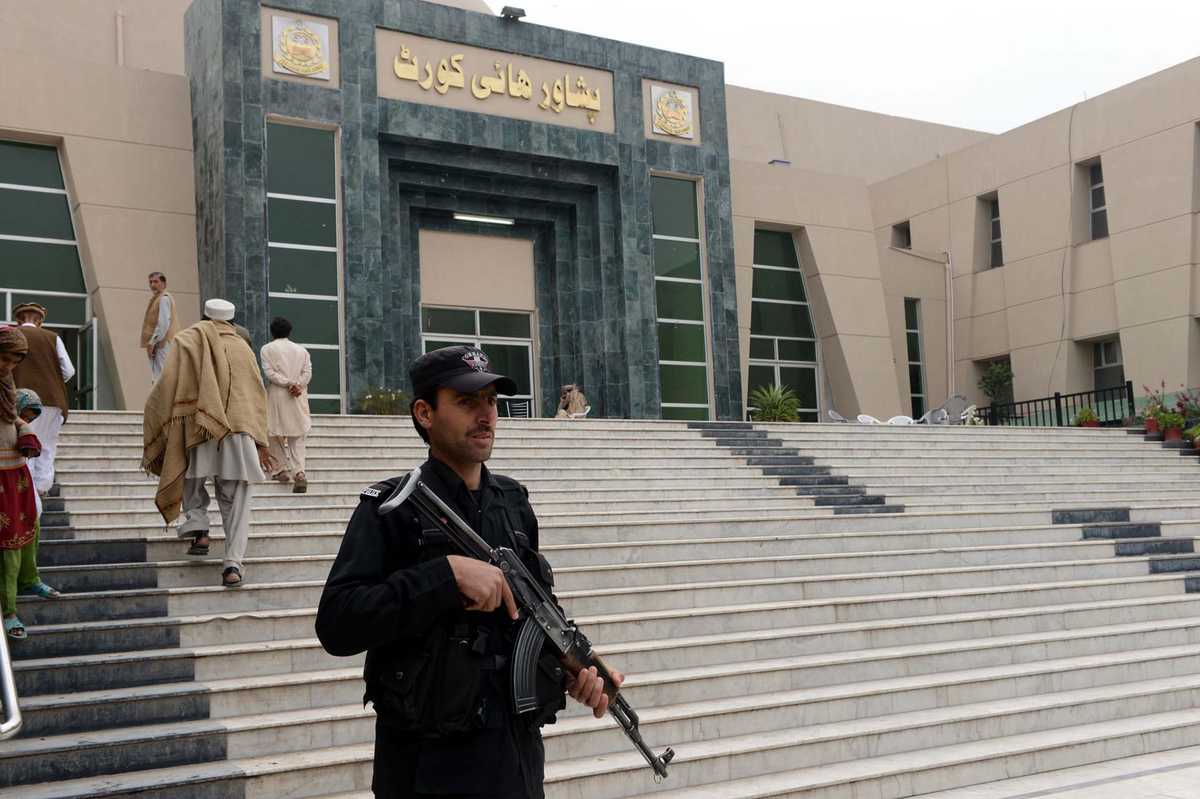Pakistan court halts by-elections after disqualification of key opposition lawmakers
Hearing petitions from PTI leaders Omar Ayub and Shibli Faraz, the Peshawar High Court barred the ECP from holding by-elections and sought a response by Aug 20

Kamran Ali
Correspondent Nukta
Kamran Ali, a seasoned journalist from Khyber Pakhtunkhwa, Pakistan, has a decade of experience covering terrorism, human rights, politics, economy, climate change, culture, and sports. With an MS in Media Studies, he has worked across print, radio, TV, and digital media, producing investigative reports and co-hosting shows that highlight critical issues.

A high court in Pakistan has temporarily halted by-elections for multiple parliamentary seats left vacant following the disqualification of opposition lawmakers linked to the violent protests of May 9, 2023.
The Peshawar High Court (PHC) issued the stay order on Wednesday, directing the Election Commission of Pakistan (ECP) to suspend all proceedings related to the vacant seats, pending further legal review.
The court was responding to petitions filed by senior leaders of the Pakistan Tehreek-e-Insaf (PTI) party, including Omar Ayub and Shibli Faraz, who were disqualified earlier this week.
The ruling came from a two-member bench of the PHC comprising Justice Arshad Ali and Justice Farah Jamshed. In a brief written order, the court instructed the ECP not to move forward with by-elections on seats vacated as a result of recent disqualifications.
The petitioners - Omar Ayub, former Leader of the Opposition in the National Assembly, and Shibli Faraz, former Opposition Leader in the Senate - had challenged both the ECP’s disqualification notifications and the subsequent declaration of their seats as vacant.
ECP acted prematurely, argues lawyer
Representing the petitioners, Advocate Bashir Khan argued that the disqualification process had been deeply flawed. He said the Anti-Terrorism Court (ATC) had issued verdicts against the opposition leaders in their absence, and that they had surrendered before the PHC to seek protective bail, with the intention of filing appeals before the Lahore High Court (LHC).
He contended that the ECP acted prematurely by issuing disqualification orders based on the ATC verdicts, without giving the petitioners a chance to be heard or awaiting the outcome of their appeals. This, he argued, violated principles of natural justice and the Constitution.
The PHC has now issued a notice to the ECP, asking it to submit a response by August 20. Until then, the commission has been restrained from taking further action against the petitioners.
Disqualifications and political fallout
The ECP disqualified a total of 11 opposition lawmakers on Tuesday, including Omar Ayub (NA-18 Haripur) and Shibli Faraz (Senate, Khyber Pakhtunkhwa). The move effectively removed the opposition leadership from both houses of parliament - an extraordinary and unprecedented development in Pakistan’s legislative history.
Other disqualified National Assembly members include:
- Sahibzada Hamid Raza (NA-104, Faisalabad)
- Zartaj Gul (NA-185, Dera Ghazi Khan)
- Rai Hassan Nawaz (NA-143, Sahiwal)
- Rai Haider Ali Khan (NA-96, Faisalabad)
At the provincial level, the following PTI lawmakers lost their seats in the Punjab Assembly:
- Junaid Afzal Sahi (PP-98, Faisalabad)
- Muhammad Ansar Iqbal (PP-73, Sargodha)
- Rai Murtaza Iqbal (PP-203, Sahiwal)
What happened on May 9, 2023?
The disqualifications are rooted in the violent protests that erupted nationwide on May 9, 2023, after the arrest of former prime minister and PTI founder Imran Khan. He was taken into custody by paramilitary forces at the Islamabad High Court in a corruption case.
The arrest triggered chaos across the country, with PTI supporters staging violent demonstrations, attacking public property, and targeting military installations - including the Army’s General Headquarters (GHQ) in Rawalpindi and the Lahore Corps Commander’s residence.
The state responded with a sweeping crackdown, arresting thousands of PTI leaders, workers, and supporters. Many were charged under anti-terrorism laws, and dozens have since been convicted in what critics describe as politically motivated prosecutions.







Comments
See what people are discussing